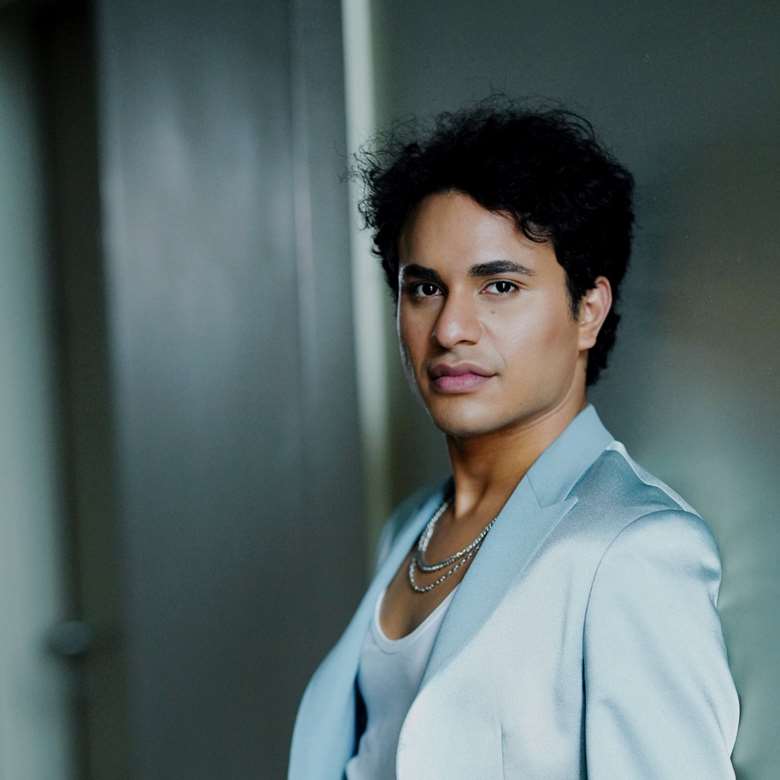'I think we can do better' | Mental Health Awareness Month - Samuel Mariño
Samuel Mariño
Sunday, May 18, 2025
The Venezuelan male soprano Samuel Mariño shares his personal experience with mental health and how the music industry should be supporting vulnerable artists

My journey with mental health has been long, complex, and deeply personal.
It began in childhood. From a very young age, I was relentlessly bullied at school. My high voice, my gestures, the way I expressed myself—these things made me a target. I was mocked, isolated, and made to feel like I didn’t belong simply for being who I am.
Those experiences left a lasting impact. They planted seeds of self-doubt and shame that I carried with me for years. I struggled to accept myself. I internalized the belief that there was something wrong with me, that I needed to change in order to be loved, to feel safe, to be accepted.
As I grew older, I turned to music—specifically opera—as a space where I could finally breathe. A space where I could tell stories and be someone else—or maybe, more truthfully, be fully myself. Singing allowed me to connect with something deeper inside me, something real and honest. It gave me a way to express all the feelings and pain I had carried for years.
When I started performing professionally, I hoped the bullying would stop. I thought that being on stage, doing what I love, would shield me. But the reality is, it didn’t. The criticism simply shifted platforms—from social media to published articles. Even with a growing audience who loves and supports what I do, there are still those quick to judge. And when you’re already fighting internal battles, those external voices can cut even deeper.
For me, struggling with mental health isn’t just a mood—it’s physical, emotional, and psychological all at once. It feels like a pressure in my chest I can’t release. It’s the constant noise in my mind—voices telling me I’m not doing enough, not good enough, not worthy. It’s a loop of self-criticism and anxiety that can make even the simplest tasks feel overwhelming. Some days, it feels like I’m carrying a weight no one else can see.
Still, I’ve found strength in being open. Talking about my mental health, rather than hiding it, has helped me form real connections—with my audience, with other artists, with people who may never have known they weren’t alone. Making myself visible, even when it’s hard, has brought healing. Vulnerability can be terrifying, but it also opens the door to understanding and compassion. And when someone tells me, 'Your story helped me feel seen,' that means everything.
What I’ve learned is that mental health struggles don’t make us weak. They make us human. And I’ve come to believe that there’s incredible power in embracing that vulnerability/humanity. For years, I believed what I was going through was unique—or worse, that it was my fault. But it’s not. These are challenges many of us face, and talking about them helps remove the shame.
In the world of opera, I think we can do better. The industry still has a long way to go when it comes to mental health. We need support systems in place—HR teams, wellness professionals, safe spaces to talk. Too often, artists are expected to perform under intense pressure without the tools or support to care for their mental well-being. That has to change.
Beyond institutional support, I dream of a more diverse and inclusive opera world—one that reflects the realities of people’s lives today. Audiences crave authenticity. They want stories that resonate on a personal level. I still hope to one day see an opera where a queer couple finds a happy ending, where different identities and stories are celebrated rather than hidden. Representation matters—not just for those on stage, but for everyone watching, hoping to see a glimpse of themselves in the art. That’s why I will continue my fight, my purpose—to try to make this world a better place, to send a message each time I can, and to share with the world that it’s okay to feel different.
Music has been a source of healing for me. It’s where I go when the world feels too heavy. It’s where I find connection, purpose, and joy. Despite everything, I feel incredibly lucky to do what I love. And part of why I continue is because I know there are others out there who need to hear that they’re not alone.
So, to anyone who’s struggling: You are not broken. You are not alone. There is space for you in this world, just as you are. And there is strength in your story—even in the parts that hurt.








